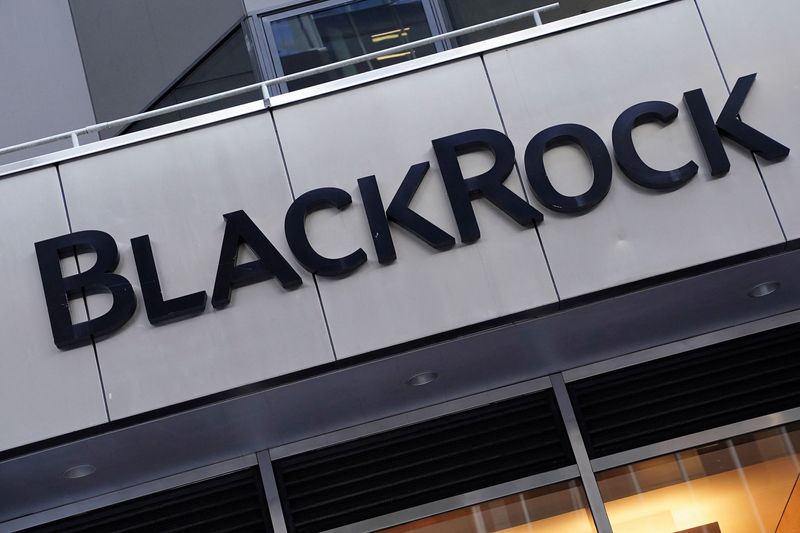BlackRock to expand proxy voting choice to retail ETF investors
2023.07.17 07:28

© Reuters. FILE PHOTO: The BlackRock logo is pictured outside their headquarters in the Manhattan borough of New York City, New York, U.S., May 25, 2021. REUTERS/Carlo Allegri/File Photo
By Ross Kerber
(Reuters) – The world’s top asset manager BlackRock (NYSE:) said it will offer proxy voting choices to U.S. retail investors of its biggest exchange-traded fund, expanding a strategy that could blunt criticism of how the firm considers environmental, social and governance (ESG) matters.
A representative for New York-based BlackRock said it plans to announce on Monday that investors in its iShares Core ETF will be able to chose among a range of policies to determine how the fund votes their shares at corporate annual meetings.
Retail investors hold about half of the $305 billion fund’s assets. Fund clients will be able to choose among voting plans from proxy advisers Institutional Shareholder Services and Glass Lewis & Co, including one that prioritizes climate considerations and a new ISS offering, aimed at conservatives, that favors company managements.
Investors will not be able to specify votes in specific company elections. But the program meant for the 2024 proxy season still marks a significant expansion of BlackRock’s efforts to give investors control, to date meant for institutional customers.
While many clients will rely on the votes BlackRock will continue to cast, “consistent with our fiduciary duty as an investment manager, others want the choice to participate in proxy voting more directly,” said Joud Abdel Majeid, Global Head of BlackRock Investment Stewardship, in a statement.
Rivals including State Street (NYSE:) and Vanguard have their own programs to devolve proxy voting rights. With some $20 trillion in combined managed assets the three companies have emerged as powerful voices in corporate boardrooms.
The three have declined to adopt policies like fossil-fuel divestment sought by some environmental activists. But they still face criticism from Republican U.S. politicians who have put their votes under scrutiny, saying steps like their participation in industry environmental efforts can amount to collusion.








